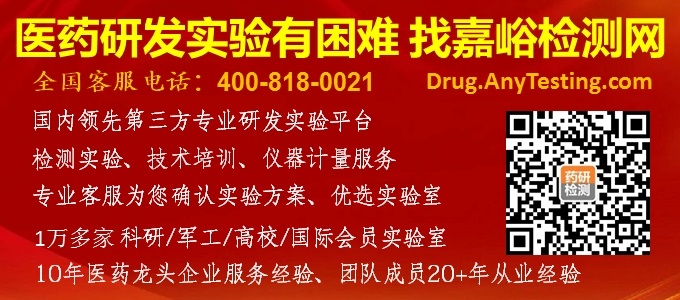您当前的位置:检测资讯 > 法规标准
嘉峪检测网 2025-07-22 21:18
可以不按药典标准放行吗?
Pharmacopoeias play an important role in quality control. They define important standards and framework conditions for tests; they contain requirements for reagents and reference materials as well as specifications for active substances (APIs), excipients, packaging materials and medicinal products. In addition, pharmacopoeias also contain descriptions of all relevant test methods.
药典在质量控制中起着重要的作用。它们为检验确定了重要的标准和框架条件;它包含试剂和标准物质的要求,以及活性物质 (API)、辅料、包装材料和医药成品的标准。此外,药典还包含所有相关分析方法的描述。
As a rule, authorities expect products and materials to meet the requirements of pharmacopoeia monographs during their storage life. In the context of the differentiation established in Europe into release and shelf-life specifications, specifications in pharmacopoeias are therefore to be seen as shelf-life specifications. This means that if changes occur during storage, specifications for release may need to be made more stringent.
通常,当局希望产品和物料在储存期内符合药典个论的标准。在欧洲将产品标准分为放行标准和货架期标准,药典标准当然将被视为货架期标准。这意味着,如果药品在储存期间会发生变化,放行标准可能需要更加严格。
However, this does not mean that the performance of all tests set out in a monograph is always a mandatory prerequisite for the release of a product batch. For example, the manufacturer can ensure that a product meets the requirements of the monograph on the basis of data from validation studies of the manufacturing process and in-process controls, such as online or at-line monitoring. In some circumstances, such data may provide a better guarantee that a batch meets a specific requirement of a monograph than test data from the examination of a small number of units taken from that batch. Control of synthetic by-products after the production of the active substance may eliminate the need for testing for these impurities in the medicinal product. This of course only applies to impurities from the production of the active substances which cannot be degradation products at the same time.
但是,这并不意味着专论中规定的所有检验始终是产品批放行的强制性先决条件。例如,生产商可以根据生产过程和过程控制(如在线或近线监测)的验证研究数据,确保产品符合专论的要求。在某些情况下,此类数据可能比从该批次中抽取少量样品的检验数据更能保证批次符合专论的要求。对活性物质生产后的合成副产物的控制可以消除对药品中这些杂质的检验需求。这当然只适用于不与活性物质同一步骤产出的杂质。
Furthermore, under conditions considered appropriate by the regulatory authority, parametric release is not excluded by the need to comply with the requirements of the pharmacopoeia.
此外,在经监管机构批准的情况下,还可以采用参数放行。
In most pharmacopoeias, the tests and assays described in a monograph are official methods on which the pharmacopoeia standards are based. After regulatory approval (included in the submission to the authority), alternative analytical methods may be used for routine control purposes. However, this only applies on the condition that a clear decision is possible on the basis of the methods used as to whether fulfilment of the monograph standards would also be possible using the official methods. In case of doubt or dispute, the analysis methods set out in the relevant monograph are binding.
在大多数药典中,专论中描述的检验和分析是官方的方法。在监管批准后(包含在提交给当局的文件中),也可用替代分析方法进行日常控制。然而,这仅适用于能够根据所使用的方法作出明确判定的条件,即是否通过官方方法也可以符合专论标准。如有疑问或争议,将以药典专论的分析方法为准。
Monographs for pharmaceutical active substances contain a section on description or characters, which also includes solubility data. These are informative in nature and do not constitute a requirement.
药用活性物质的专论包含关于简介或特性的章节,其中还包括溶解度数据。这些只做信息用途,不构成标准要求。
Pharmacopoeias contain general monographs whose requirements for reagents, reference standards, packaging, excipients and active substances and/or medicinal products should be met. Individual monographs contain specific requirements for an article, including additional points, and may extend limits for the requirements of a general monograph or provide for exceptions. The exact application of the general monographs is handled differently in the various pharmacopoeias. The USP provides for more comprehensive definitions in the individual product monographs.
药典通论,包含关于试剂、对照标准、包装、辅料和活性物质和/或医药产品的要求应符合。个别专论包含药品的具体要求,包括附加要点,并可能超出通论的要求或作出例外规定。通论的精确应用在各种药典中有不同的处理方式。USP 在各个产品专著中规定了更全面的定义。
Biological macromolecules produced from cell cultures, such as monoclonal antibodies, represent a challenge for a pharmacopoeia.
细胞培养产生的生物大分子,如单克隆抗体,对药典来说是一个挑战。
In addition to the specifications, these substances are significantly characterised by the manufacturing process. Because pharmacopoeias are primarily based on specifications, a different approach with regard to monograph content is required for biological medicinal products, and this is still in development.
除了标准之外,这些物质在生产过程中具有显著的特点。由于药典主要基于标准,生物医药产品需要对专论内容采取不同的方法,而且这种方法仍在开发中。
可以不按药典储存吗?
药品的储存条件首先按照药品说明书上的要求进行保存,若说明书未标示具体温度等条件,则按照《中华人民共和国药典》规定的贮藏要求进行储存。具体依据如下:
法规规定:《药品经营质量管理规范》明确要求,企业应当根据药品的质量特性对药品进行合理储存,按包装标示的温度要求储存药品,包装上没有标示具体温度的,按照《中华人民共和国药典》规定的贮藏要求进行储存。
说明书的重要性:药品说明书是药品上市许可持有人、药品生产企业基于药品的研发、生产等过程,对药品的使用、储存等各方面进行详细说明的法定文件。其中的【贮藏】项是药品储存的直接依据,它针对该药品的具体特性,给出了最准确、最合适的储存条件,以确保药品在有效期内的质量和稳定性。比如硝酸甘油,说明书通常会明确要求遮光、密闭保存,这是因为硝酸甘油对光敏感,容易分解失效。
说明书上的储存条件可以和药典不一致,但需要有充分的依据和经过相关部门的审批。
药品说明书的储存条件是根据药品的稳定性试验结果制定的,应确保药品在规定的储存条件下能够保持其质量、安全性和有效性。如果药品的储存条件与药典不一致,企业需要提供充分的稳定性研究数据和科学依据,证明该储存条件能够保证药品的质量和稳定性。同时,企业还需要按照药品注册管理的相关规定,向药品监督管理部门提交补充申请,经批准后方可变更说明书中的储存条件。
真实案例:某产品在中国药典中规定的储存条件为:阴凉储存(即≤20℃),该公司考虑到该产品在国外药典储存条件为:室温(即15~25℃),通过查询相关文献,该产品可以支持常温储存,该公司在充分稳定性试验的条件下申报储存条件变更为常温保存,不同于药典。

来源:GMP办公室


